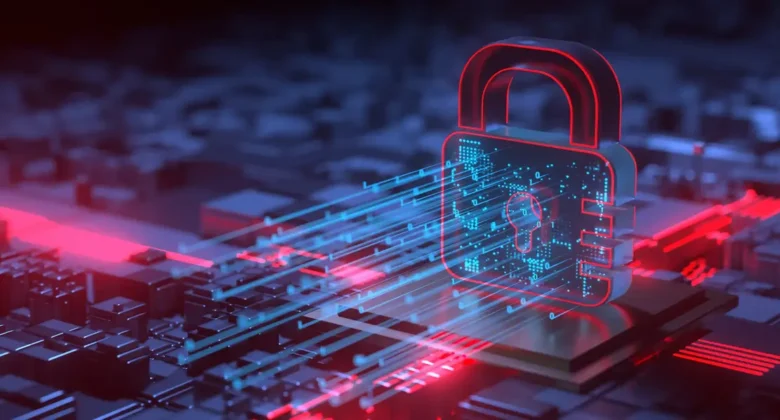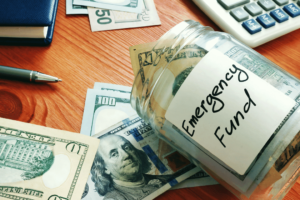In our digital world, managing your finances online is the norm. Digital tools help us transfer money, pay bills, and even invest. From mobile banking to online shopping, we’re inseparable from it all. However, cybercriminals are constantly looking for ways to steal personal and financial information, knowing that convenience often comes with risk. A single breach can lead to identity theft, account loss, or long-term damage to your financial reputation. Therefore, good financial security habits are no longer optional; everyone needs to develop them.
Awareness, action, and vigilance are all essential to protecting your digital data. The good news: by adhering to proven methods, you can significantly reduce your risk of being hacked. This article explores some key financial cybersecurity tips that are practical, evidence-based, and easy to use. These tips will help you protect your money and personal information in this increasingly connected world.
Set a Strong, Unique Password for Your Bank Account:
Cracked or commonly used passwords make it easier for hackers to access your financial accounts. Your password is your first line of defense against hackers. Research shows that most data breaches occur because someone steals someone else’s login credentials. For security, ensure all your bank accounts have strong passwords that contain numbers, letters (upper and lowercase), and special characters. Avoid sharing personal information like names or dates, as this information can be easily hacked. Additionally, password management tools can help you create strong passwords and keep them secure. Using strong passwords makes it harder for cybercriminals to break into your accounts.
Enable Two-Factor Authentication:
Protecting your bank account with multi-factor authentication (MFA) is one of the best ways to ensure its security. Even if someone obtains your password, MFA requires an additional verification step, such as a biometric scan, SMS code, or email link, to log in. This significantly reduces the risk of unauthorized access. Many banks, credit card companies, and financial websites now offer this feature. Once enabled, it adds a second lock to your digital vault. MFA is like a seatbelt for your online banking: it’s user-friendly, yet it can help you avoid major problems. In terms of security, logging into apps is considered more secure than SMS verification codes, which are easily hacked.
Avoid Financial Transactions via Public Wi-Fi:
Cafes, airports, and hotels all offer public Wi-Fi networks. While these networks are convenient, they are often insecure and an easy target for hackers. Hackers can access your data or use fake networks to obtain your login credentials. When conducting financial transactions via these networks, you unnecessarily compromise your accounts. When accessing your bank accounts or making payments on the go, it’s best to use mobile data or a VPN, which encrypts your network traffic. If you’re not careful where and how you connect, hackers can turn a temporary convenience into a financial disaster.
Monitor Your Bank Accounts:
One of the best ways to detect fraud early is to remain vigilant. By regularly checking your bank and credit card statements, you can spot unusual activity before it becomes a serious problem. Cybercriminals often test stolen credentials with small transactions before attempting to steal more sensitive information. By setting up real-time notifications for every transaction, you’ll be immediately alerted to any unusual activity. Regularly checking your accounts not only helps you track your spending but also allows you to take swift action in the event of fraud. Keeping track of your finances is as important today as locking your door was back in the day.
Updating Your Hardware and Software Is Crucial:
Cybercriminals favor older devices and applications because they often contain unpatched security vulnerabilities. Keeping your operating system, banking applications, and security software up to date is crucial, as regular updates can address these vulnerabilities. Automatic updates ensure you don’t miss any important patches. Installing reliable antivirus and anti-malware software is another way to protect yourself from potential threats. Updates are similar to monthly maintenance for your computer’s security. Without updates, hackers can break in and exploit vulnerabilities in your system. Keeping your devices up to date is a wise move and can significantly improve your financial security.
Conclusion:
You can no longer ignore financial cybersecurity; it’s essential for protecting your money, your reputation, and your peace of mind. To protect yourself from cyberthreats, use strong passwords and multi-factor authentication, avoid unsecured networks, closely monitor your accounts, and keep your devices up to date. Cybercriminals love to see people failing to protect their accounts or developing bad habits. But by staying vigilant and developing good habits, you can stay ahead of them. Always remember that hacking isn’t just a one-time security measure; it’s a daily habit that will keep you safe in the long run. By implementing these tips today, you can not only protect your financial future but also ensure that your hard-earned money stays where it belongs: in your hands.
FAQs:
1. How often should I change my bank account password?
Passwords should be updated every three to six months, or immediately if you suspect something is wrong.
2. If my password is strong, do I really need multi-factor authentication?
Yes, multi-factor authentication adds an extra layer of protection, significantly reducing the chance of someone accessing your account without your permission, even if your password is stolen.
3. Does antivirus software protect me from all possible online financial threats?
While security software is useful, it’s also advisable to avoid public Wi-Fi networks and regularly check your accounts for full security.
4. What should I do if I see transactions on my account that I didn’t make?
Immediately report the fraud to my bank, change your login details, and monitor your account closely for further action.
5. Are mobile banking apps more secure than web browsers?
Yes, banking apps are often considered better because they’re designed with security in mind, but only download them from official app stores and ensure they’re always up to date.




